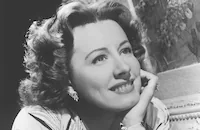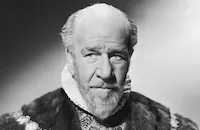If I Were Free

Brief Synopsis
Cast & Crew
Elliott Nugent
Irene Dunne
Clive Brook
Nils Asther
Henry Stephenson
Vivian Tobin
Film Details
Technical Specs

Synopsis
In Paris, English lawyer Hector Stribling convinces his countryman, Gordon Evers, also a lawyer, to forget his impending divorce and join him and his wife Jewel for dinner with Tono Casanove and his American wife Sarah. When Gordon and the Striblings arrive at the Casanoves', however, they discover that Tono, who is having an affair, is packing to go to Cannes. After Tono's abrupt departure, Sarah contemplates shooting herself but is stopped by Gordon, who fully understands her marital despair. At the end of a long evening, Gordon suggests to Sarah that she go to London with him and divorce Tono. She agrees and, after a short time in London, opens a modest antique store, which Gordon frequently visits. Eventually, Gordon confesses his love to Sarah and asks her if she would marry him if he "were free." Sarah's affirmative reply encourages Gordon to invite her to meet his mother, Dame Evers, at her annual charity ball. Although Sarah favorably impresses Dame Evers, she becomes aware of the gossip that is spreading about her relationship with Gordon. Jealous of Sarah, Gordon's wife Catherine then announces that she has changed her mind about divorcing. In spite of Gordon's pleas that they end their affair, Sarah pledges her continued love to him. Soon after, however, Tono drops by her shop and insinuates that unless Gordon buys some of his expensive antiques, he will talk to reporters about the romance. At the same time, Hector, who is concerned over Gordon's failing health and judicial career, convinces Sarah to end their relationship. Unknown to Sarah and Hector, Gordon, who has a war-wound bullet lodged near his heart, has just learned that, unless he survives a risky operation, he has only a year to live. When Gordon receives Sarah's "goodbye" note, he tells Hector about his condition, which causes Hector to confess his part in Sarah's rejection. Revitalized by Hector's revelation, Gordon chooses to chance the operation but asks Hector not to tell Sarah. Just before the operation, however, Dame Evers confides in Sarah, who rushes to the hospital to be by Gordon's side. The operation proves successful, and Catherine, seeing the enormity of Gordon's love, finally gives in and grants him a divorce. Truly free, Gordon marries Sarah.

Director

Elliott Nugent
Cast

Irene Dunne
Clive Brook

Nils Asther

Henry Stephenson
Vivian Tobin

Laura Hope Crews
Tempe Pigott
Lorraine Maclean
Crew

Film Details
Technical Specs

Articles
If I Were Free
Despite the clichéd material, the top notch cast of If I Were Free breathes life into the somber drama. Irene Dunne and Clive Brook bring tremendous sensitivity to their characters, making them rich and three dimensional. Former silent star Nils Asther is deliciously smarmy as Dunne's cheating husband, and Laura Hope Crews delights as Gordon's sympathetic mother.
Dwight Taylor adapted the screenplay from the original theatrical production Behold We Live by John Van Druten. The play ran on the London stage during 1932 and starred Gertrude Lawrence and Gerald du Maurier in the leading roles.
If I Were Free premiered at Radio City Music Hall in New York on January 4, 1934 to generally positive reviews. "By dodging the stereotyped stuff," wrote Mordaunt Hall in his New York Times review, "the picture offers quite an agreeable surprise, and if the various happenings are somewhat humdrum they are relieved by occasional witty lines and colorful touches."
Irene Dunne fans will appreciate her nuanced performance as the beleaguered Sarah. They will also enjoy hearing her trained lyric soprano voice as she sings a few informal songs within the film including an a cappella version of "Early Rising."
The legendary Merian C. Cooper of King Kong (1933) fame served as Executive Producer on If I Were Free during his stint as head of RKO.
Producer: Merian C. Cooper, Kenneth Macgowan
Director: Elliott Nugent
Screenplay: Dwight Taylor, John Van Druten (play)
Cinematography: Edward Cronjager
Film Editing: Arthur Roberts
Art Direction: Charles Kirk, Van Nest Polglase
Music: Roy Webb
Cast: Irene Dunne (Sarah Cazenove), Clive Brook (Gordon Evers), Nils Asther (Tono Casanove), Henry Stephenson (Hector Stribling), Vivian Tobin (Jewel Stribling), Laura Hope Crews (Dame Evers).
BW-66m. Closed captioning.
by Andrea Passafiume

If I Were Free
Quotes
Trivia
The play, "Behold, We Live", opened in London on 16 August 1932.
Notes
The working title of this film was Behold, We Live! A Film Daily production news item adds Murray Kinnell and Luis Alberni to the cast, but their participation in the project has not been confirmed. Modern sources add Mario Dominici to the cast.














